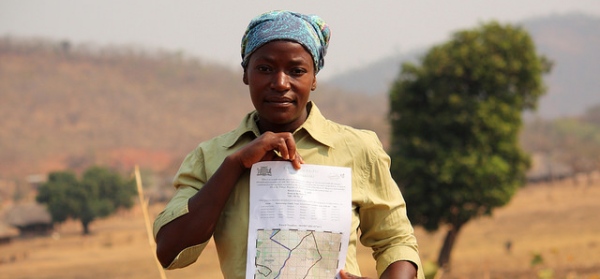Negative impacts of land digitization
“Land is political, not technical”. Like all life, that is.
Had you ever realized that there are AT LEAST “10 Human Rights Impacts of Land Governance Digitalization”?
The main issue from that post, which is itself a synopsys of a larger article is that too often digitization of land management may seem cool and modern, but is nothing new at all. Nothing good, that is. Except that “most blockchain projects [in this space] are stalled or still in the initial phase”.

There is already a lot of “Land Governance Digitalization” going on, in every corner of the world. Personally, I am sure that this is half unavoidable, half, in the long term, be beneficial. The problem of course is how long it will take to get there, and how much damage will happen along the way, especially in the Global South.
ICTWorks explains the concrete impacts that digitization of land management is already having on land governance and the rights of people and communities who aren’t “digitally equipped” to protect their own interests. The major problem here is that digitization may “further entrench tenure models based on exclusive, private ownership and land markets”. In other words…
Digitalization is NOT innovative. Especially of land
“Despite a lot of talk about disruption and the potential of leapfrogging in debates around digitization”, reality shows that many initiatives just “replicate and amplify” existing issues, inequalities and conflicts, and only sees “market-based approaches”.
Digitalization Changes Policy, Without Participation
The original problem here is the same that happens in too many other fields of society: changing people to fit technology, instead of the other way around.
Land is a political issue, not a technical one. But land digitization as described in that post consists of two things:
- change existing legislation, just to make it compatible with digital technology
- reconfigure or redefine ownership rights, with the same excuse
that are nothing new, and are only in the interest of very few people. Nothing new, again.
The way to go, instead, is to first decide in the old ways (participated debate, for example) how to manage land, and then see how modern technology can help implement that vision. Possibly starting from participatory mapping of community lands. For more on the same subject, check out this primer on digital land grabbing. Then apply it to education, healthcare and so on.
Who writes this, why, and how to help
I am Marco Fioretti, tech writer and aspiring polymath doing human-digital research and popularization.
I do it because YOUR civil rights and the quality of YOUR life depend every year more on how software is used AROUND you.
To this end, I have already shared more than a million words on this blog, without any paywall or user tracking, and am sharing the next million through a newsletter, also without any paywall.
The more direct support I get, the more I can continue to inform for free parents, teachers, decision makers, and everybody else who should know more stuff like this. You can support me with paid subscriptions to my newsletter, donations via PayPal (mfioretti@nexaima.net) or LiberaPay, or in any of the other ways listed here.THANKS for your support!